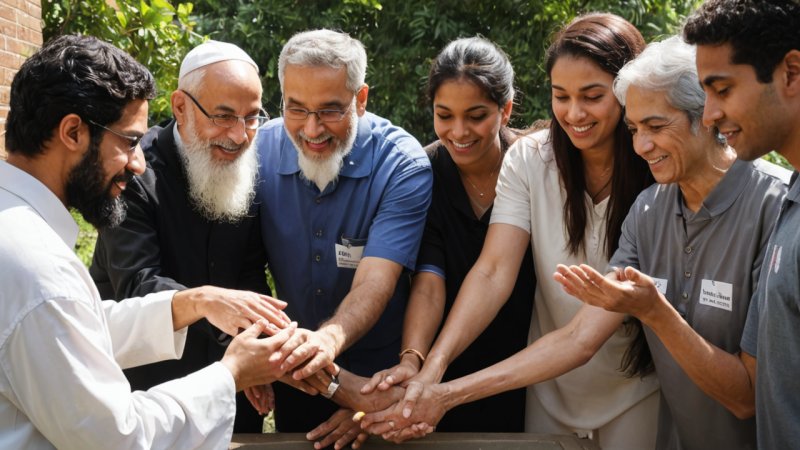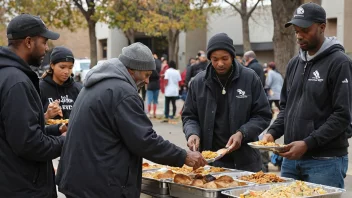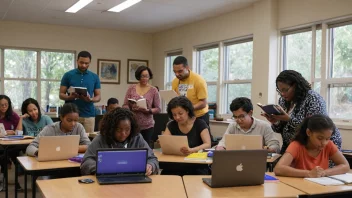In a world marked by division and conflict, interfaith initiatives have emerged as powerful tools for social service, fostering collaboration among diverse religious communities to address pressing societal issues. These initiatives not only promote understanding and respect among different faiths but also mobilize collective resources to tackle challenges such as poverty, health disparities, and environmental degradation. By harnessing the strengths of various religious traditions, interfaith initiatives create a unique platform for service that transcends individual beliefs and focuses on the common good.
The Foundation of Interfaith Initiatives
Interfaith initiatives are collaborative efforts that involve individuals and organizations from different religious backgrounds working together towards common goals. These initiatives can take many forms, including community service projects, educational programs, and advocacy campaigns. The core aim is to foster dialogue and cooperation among faith communities, emphasizing shared values and mutual respect.
Historically, interfaith movements have gained traction in response to the increasing recognition of religious diversity in societies around the globe. As communities become more multicultural, the need for collaborative approaches to social service has become more evident. Religious leaders and organizations have begun to understand that by working together, they can amplify their impact and reach a broader audience.
The Importance of Interfaith Dialogue
At the heart of interfaith initiatives lies the concept of dialogue. Open discussions between different faiths can dismantle stereotypes, reduce prejudice, and foster empathy. Interfaith dialogue allows participants to share their beliefs, practices, and experiences, creating a deeper understanding of one another.
Such dialogue is crucial in addressing issues that affect all communities, such as poverty, health care access, and environmental challenges. When faith leaders unite to discuss these issues, they can create a unified front that advocates for change, demonstrating that compassion and service are universal values.
Health and Wellbeing: A Collaborative Approach
Health disparities often disproportionately affect marginalized communities. Interfaith initiatives have the potential to address these disparities by leveraging the resources and networks of various religious organizations. For instance, faith-based groups can provide health education, mental health support, and access to medical services, particularly in underserved areas.
One notable example is the collaboration between religious organizations and healthcare providers during public health crises. During the COVID-19 pandemic, many interfaith groups worked together to disseminate accurate information about the virus, promote vaccination, and support those affected by the disease. By pooling their resources and knowledge, these initiatives played a critical role in enhancing community health and wellbeing.
Case Study: Faith Communities and Mental Health
Mental health remains a stigmatized issue in many cultures, often leading to individuals suffering in silence. Interfaith initiatives can play a vital role in addressing mental health challenges by promoting awareness and understanding. For example, interfaith discussions that include mental health professionals can help destigmatize mental illness and encourage individuals to seek help.
Programs that integrate spiritual support with mental health services, such as counseling offered by faith leaders, can provide holistic care that addresses both emotional and spiritual needs. Such collaborations can lead to improved mental health outcomes and a greater sense of community support.
Education and Literacy: Empowering Communities
Education is a powerful tool for social change, and interfaith initiatives can significantly contribute to literacy and educational access in underserved communities. By combining resources and expertise, faith-based organizations can create educational programs that cater to various age groups and learning needs.
Interfaith education initiatives often focus on teaching values such as tolerance, respect, and compassion alongside academic subjects. This holistic approach not only equips individuals with essential skills but also fosters a sense of belonging and community.
Innovative Approaches to Education
One innovative approach to interfaith education is the establishment of community learning centers where individuals from different backgrounds come together to learn and share their experiences. These centers can offer language classes, tutoring, and vocational training, empowering community members to improve their socioeconomic status.
Moreover, interfaith dialogue sessions can be incorporated into educational programs, allowing participants to engage in discussions about ethical issues and social justice, further enhancing their critical thinking and problem-solving skills.
Poverty Alleviation: A Collective Mission
Poverty remains one of the most pressing global issues, and interfaith initiatives are uniquely positioned to address it. By uniting various faith communities, these initiatives can mobilize resources, share best practices, and implement effective poverty alleviation strategies.
Many interfaith organizations focus on providing essential services such as food distribution, housing assistance, and job training programs. The collective effort of multiple faith groups can lead to more comprehensive support systems that address the root causes of poverty rather than just its symptoms.
Successful Interfaith Poverty Alleviation Programs
One successful example of interfaith collaboration in poverty alleviation is the establishment of food banks that serve diverse communities. These food banks often rely on donations from various religious organizations, allowing them to provide nutritious meals to those in need.
Additionally, interfaith initiatives can advocate for policy changes that address systemic issues contributing to poverty, such as lack of access to education, healthcare, and employment opportunities. By presenting a united front, faith leaders can influence local and national policies that aim to reduce poverty and promote social equity.
Disaster Relief: Faith in Action
Natural disasters can devastate communities, and the response often requires swift action and collaboration. Interfaith initiatives have proven to be effective in disaster relief efforts, as they bring together diverse resources and volunteers to provide immediate assistance.
Religious organizations often have established networks that can be mobilized quickly in times of crisis. These networks allow for efficient distribution of aid, including food, shelter, and medical care, to those affected by disasters.
Interfaith Collaboration in Action
During major disasters, such as hurricanes or earthquakes, interfaith coalitions have come together to coordinate relief efforts. For example, after Hurricane Katrina, numerous faith-based organizations collaborated to provide food, shelter, and rebuilding support to affected communities.
Moreover, interfaith initiatives can also focus on long-term recovery efforts, helping communities rebuild and become more resilient to future disasters. This holistic approach not only addresses immediate needs but also empowers communities to prepare for and respond to future crises.
Environmental Protection: A Shared Responsibility
As the world faces unprecedented environmental challenges, interfaith initiatives have emerged as advocates for sustainability and environmental stewardship. Many religious traditions emphasize the importance of caring for the Earth, making faith communities powerful allies in the fight against climate change.
Interfaith environmental initiatives often focus on raising awareness about environmental issues, promoting sustainable practices, and advocating for policy changes that protect the planet. By working together, religious communities can amplify their voices and promote a shared vision for a sustainable future.
Case Study: Faith and Climate Action
One notable example of interfaith environmental action is the 2015 Interfaith Climate Change Statement, where leaders from various faith traditions came together to call for urgent action on climate change. This statement emphasized the moral imperative to protect the planet and urged governments to take meaningful steps towards sustainability.
Additionally, local interfaith initiatives have organized community clean-up events, tree-planting campaigns, and educational workshops on sustainable living, demonstrating the collective commitment of faith communities to environmental protection.
Spiritual Support: Nurturing the Soul
Beyond physical and material needs, interfaith initiatives also address the spiritual and emotional well-being of individuals. Many people turn to their faith communities for support during times of crisis, grief, or uncertainty. Interfaith initiatives can provide spiritual care that is inclusive and respectful of diverse beliefs.
Programs that focus on spiritual support often include counseling, prayer services, and meditation workshops, allowing individuals to find solace and strength in their faith. By offering spiritual resources, interfaith initiatives can help individuals cope with life's challenges and foster resilience.
The Role of Faith Leaders in Spiritual Support
Faith leaders play a crucial role in providing spiritual support within interfaith initiatives. By sharing their wisdom and guidance, they can help individuals navigate difficult times and find hope in their faith. Interfaith dialogue sessions can also serve as platforms for sharing spiritual practices, fostering mutual understanding and respect.
Moreover, interfaith initiatives can promote mental health by encouraging open discussions about faith and wellness, creating safe spaces for individuals to explore their beliefs and seek support.
Conclusion: The Power of Unity in Diversity
Interfaith initiatives represent a powerful force for social service, demonstrating that collaboration among diverse religious communities can lead to meaningful change. By addressing critical issues such as health and wellbeing, education, poverty alleviation, disaster relief, environmental protection, and spiritual support, these initiatives create a comprehensive approach to social justice.
As individuals, we can support interfaith initiatives by participating in local programs, engaging in dialogue, and promoting understanding among different faiths. Together, we can build a more compassionate and just world, where the power of unity in diversity transforms lives and communities.






